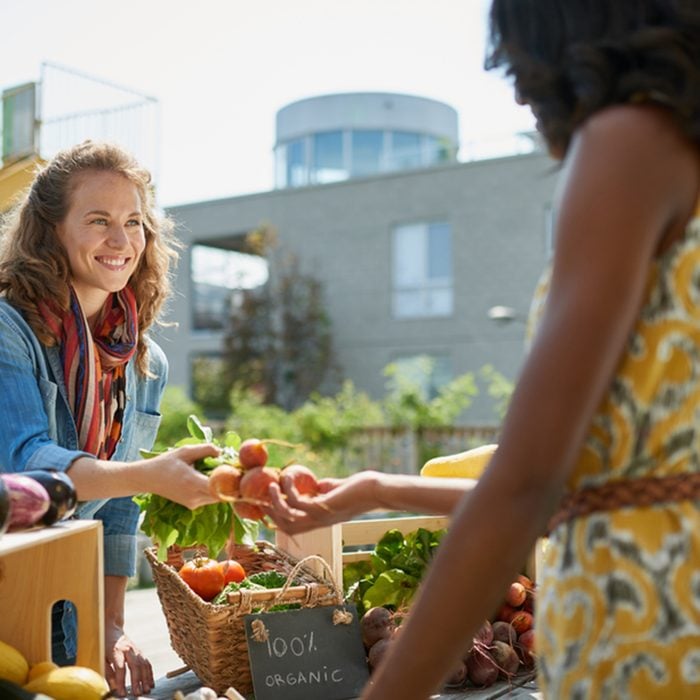
It’s Saturday morning and you’re feeling hungry. Why not head to the farmers market? It’s a great way to stimulate the local economy and purchase fresh groceries in a sustainable format. (Not sure where to go? We’ve found the best farmers market in every state.) To navigate your local market successfully, we chatted with two farmers market experts who shared their best secrets for shoppers. Here are our best tips for sellers.

Take a Lap
Like Cher Horowitz said in the cult classic Clueless, “Let’s take a lap before we commit to a location.” And while she said this in reference to a high school party circa 1995, the same goes for a farmers market today.
“Walk the whole market and see what is there first and then double back to make your purchases,” says April Yuds of LotFotL (aka Living off the Fat of the Land), a community farm based in southern Wisconsin. You may find a booth hiding in the back that you would have missed otherwise.

Bring Cash
While there has been an uptick in farmers utilizing smartphone apps to process credit card payments, these apps generally have fees that can put a dent into the farmers’ income. “Bringing cash to the market can make for a smooth shopping experience!” says Marissa Lundin, who spent three summers working at Centgraf Farms in Wisconsin and also a season with the Michael Fields Agricultural Institute.
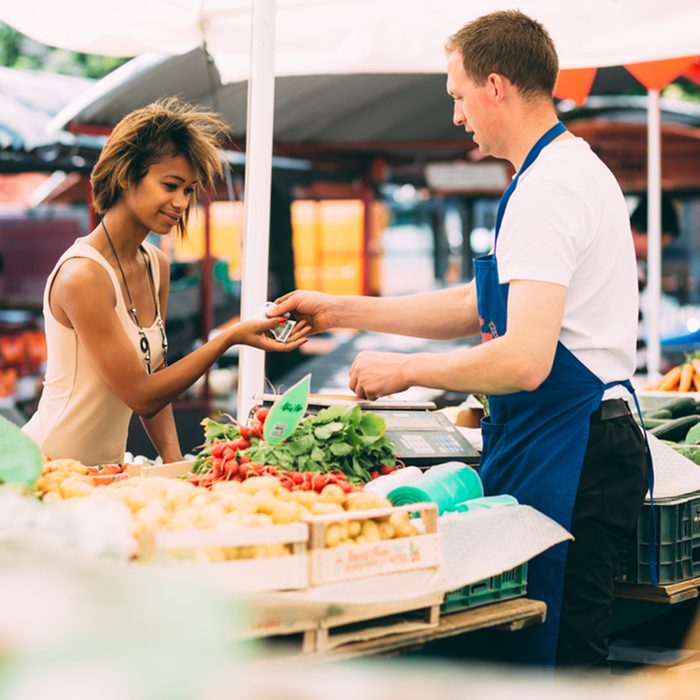
Don’t Negotiate
Just because this is a market doesn’t mean it’s the right place to negotiate. This is how farmers make a living, and it should be respected. Want to get creative about saving money and shopping locally? Talk to the farmers about trading work for food through working at the market, on the fields or at a CSA site.
“If you want local food grown sustainably (as in, farmers and staff make a living wage, diverse crops, holistic pest and weed management, organic certification, etc.), then it is going to cost a little more,” Yuds says.
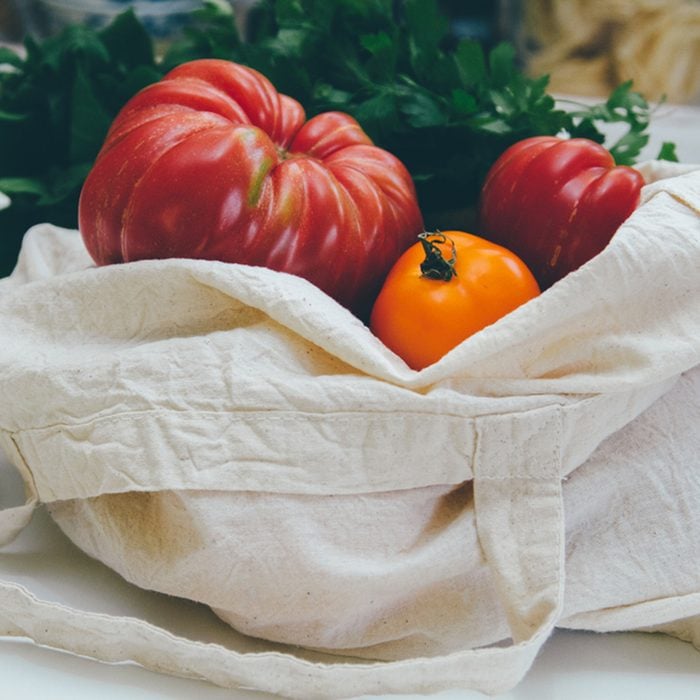
Bring a Bag
Many vendors will have plastic bags to spare—but they’ll certainly appreciate it if you provide your own. Not only is it good for the environment, but it’s also easier for farmer’s, too, as they won’t have to wrangle up spare packaging. Plus, you’ll look incredibly chic toting around reusable bags like these.

Talk to the Farmers
Especially if you are going every week and shopping with the same farmers, engage with them like you would any other place you frequent. “The best part about interacting with the community through farmers markets is making connections with customers who really appreciate what you do,” Lundin explains. “Vendors always enjoy questions and connecting the customer to the product, so don’t be afraid to engage your farmer and learn about where your food is coming from!”

Make a List, But Don’t Stick to It
Start your morning by planning out a list of recipes (like one of these farmer-approved dishes), that you can make throughout the week with the fresh produce, meats and eggs you’ll pick up. Use this as a rough guideline for what you’ll actually buy at the market. Since many markets’ offerings fluctuate weekly, you should expect to be flexible with what you purchase. Kale can be swapped in for spinach, spaghetti squash for pasta—and even cauliflower can be used in place of white rice.
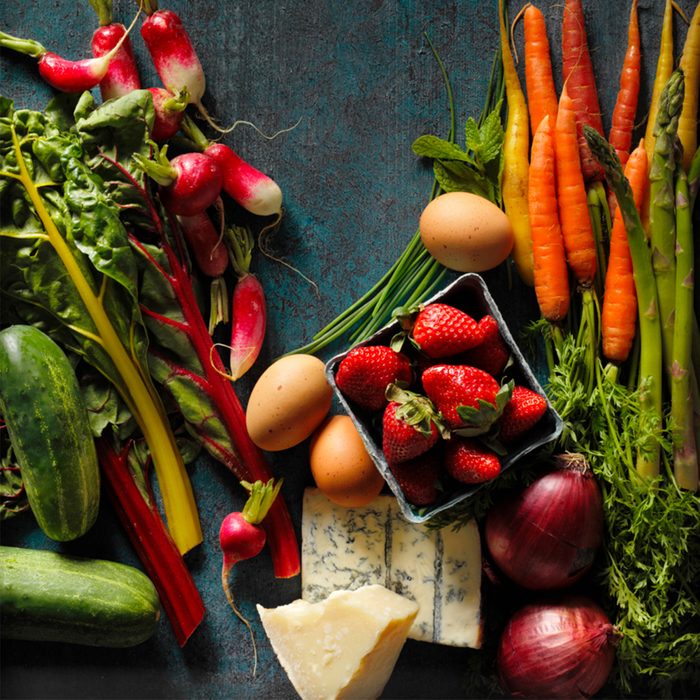
Know What’s in Season
Think about the bright, juicy flavor of a summer tomato compared to one that you get during winter. You know you’re getting the best possible flavor from your ingredients when they’ve hit their peak. Ask a produce vendor what’s in season, or follow one of our guides:
- Spring Produce
- Summer Produce
- Fall Produce
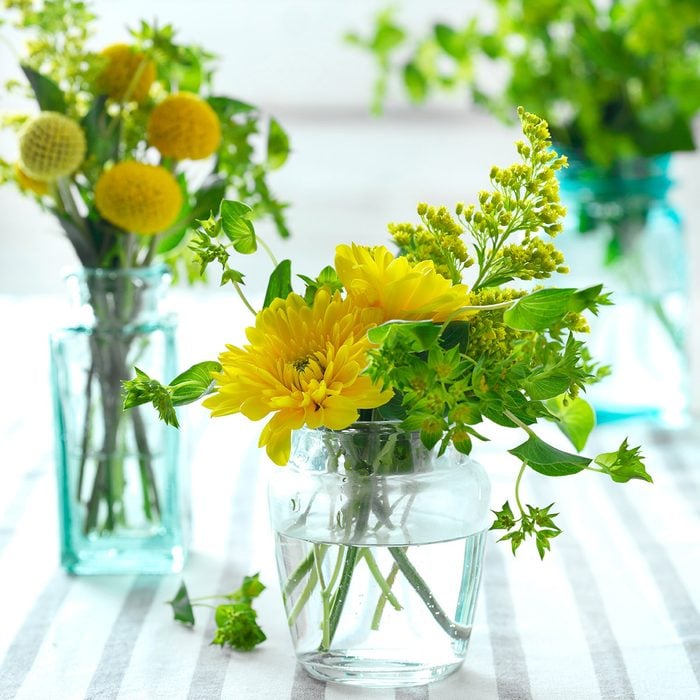
Buy More Than Just Produce
While there is an abundance of produce at the market, you can also get fresh cuts of meats, eggs, juices, flowers and so much more! “Think about how you can do more of your grocery shopping at farm markets,” says Yuds. Just make sure to bring extra bags…and maybe a buddy to help carry it all! By the way, there’s a scientific reason why you should be buying fresh flowers.
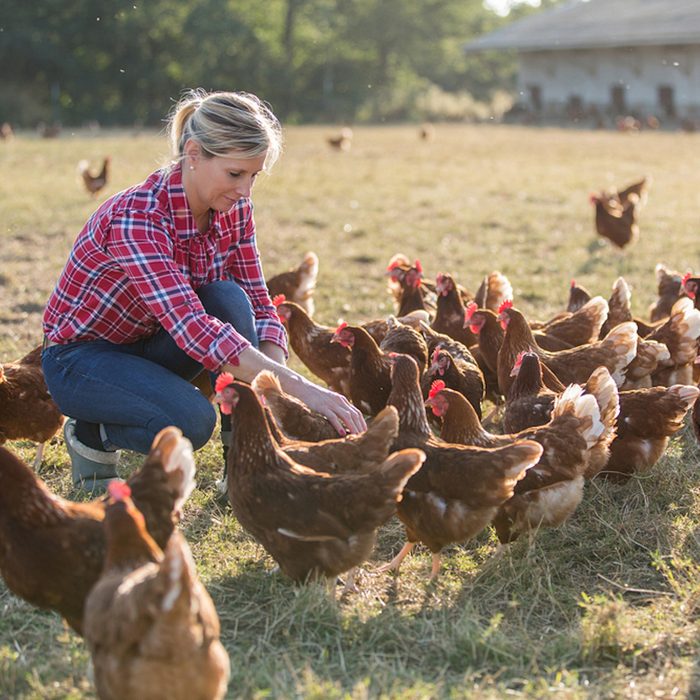
Ask About Our Values
The best thing about farmers markets is that you’re able to put a face to the product. “Think about what is important to you when it comes to your food and ask questions to find out if the vendor is selling something that meets those values”—whether that’s local, organically certified, small family farms, animals raised on pasture and more, Yuds says. Most vendors will be thrilled to share.
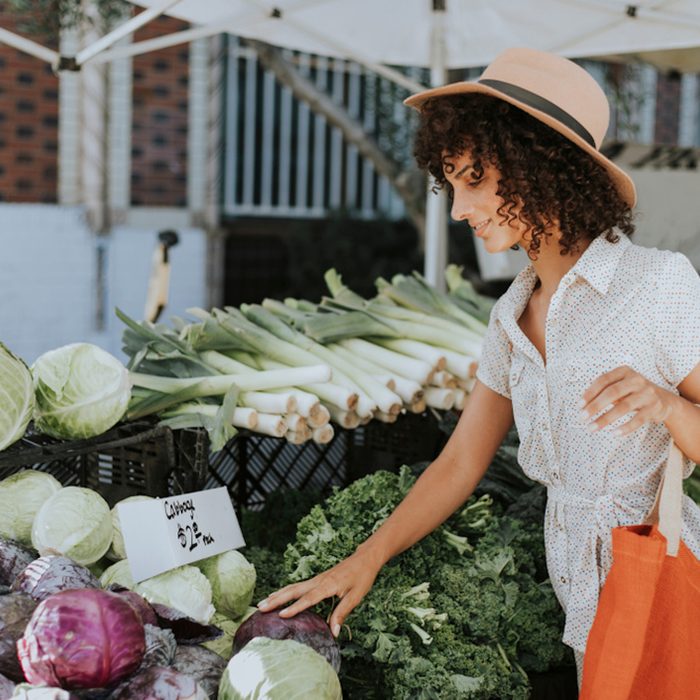
Try Hyper-Local Varieties
Markets are the perfect place to pick up new ingredients that you wouldn’t find at the store. Local mushroom varieties, colorful heirloom tomatoes and raw honey (you should know about it!) are among some of our favorites to seek out when we hit the market. You’ll be amazed at the difference in flavor that comes from buying produce from your own neighborhood compared to what you’d find at the store.
Note: Every product is independently selected by our editors. If you buy something through our links, we may earn an affiliate commission.
